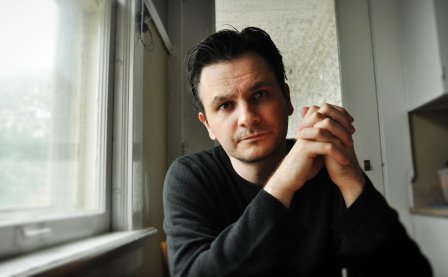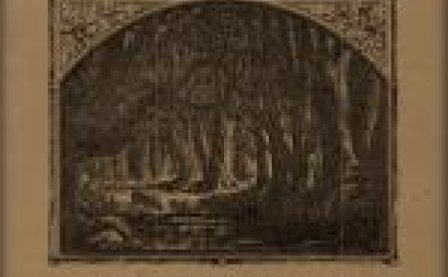It's become trendy lately to point out the perceived mislabeling of Mat Sweet's (known more colloquially as Boduf Songs) music as "folk." The idea is that the emotionally terrorizing odes, ballads, and hymns issued forth from Sweet's bedroom/studio are just too dark, too heavy, too utterly alien to fall under today's definition of "folk," or even under the fall-back designation and buzzword du jour, "freak folk." This may be true, but it has nothing to do with the music of Boduf Songs. The criticism hinges itself on a neutered definition of "folk" music, relating the term almost exclusively to optimistic, childlike, and almost unfailingly bearded men leading sing-a-longs with college kids on playgrounds. That Sweet's music doesn't fit into this picture shouldn't bar it from the designation of "folk," however, and to deny the mythological, bardic, and immanently human nature of these songs would be a most grievous error: folk music is exactly what this is.
How Shadows Chase the Balance, the third proper release from Boduf Songs (not including an array of limited-edition CD-Rs), isn't a radical departure from either Sweet's previous musical sensibilities (acoustic guitar and vocals) or his typical thematic material (death, loneliness, etc.). Instead, the album represents a tremendously potent distillation of everything horrifying and mesmerizing in Sweet's music. The album strikes with an unnerving precision at the core melancholy of all existence, the herculean strength of Sweet's songwriting gently holding our heads over the abyss, forcing us to come face-to-face with the terrifying reality of being a definitively singular individual in the universe. This is an album about being alone and the attendant anxiety and sheer panic that can result from such realization. Sweet's lyrical methodology, particularly his use of the pronoun "we" and repeated questioning of the listener, make the endeavor even more eerie, evoking the feeling that he somehow gained access to private regions that we ourselves rarely dare explore.
Characteristic of a lot of folk music, the album is a story, one that Sweet spins as deftly and with as much emotional lucidity as the poet/philosophers of old. There is truly a picture of evolving attitudes toward existence and a deep disillusionment that grows like mildew. On the second track, "Things Not to be Done on the Sabbath," the feelings of awe, the realization of one's powerlessness, and the banality of the universe are expressed painfully for us: "We rode through stars/ On silver beams/ We pay our bills/ We keep things clean." The dichotomy between the dismal reality of our everyday lives and the seemingly unbridgeable chasm between the two have rarely been put into sharper focus.
Later, resignation begins to creep in. On "Quiet When Group," a vast canyon of a song that plunges seven-minutes deep past strata of acoustic guitar, winding up in an echo chamber of subtly pounding deep bass and a light drum beat, Sweet intones a repeated theme of insidious and inescapable melancholy that comes to taint all experience: "And even when we sleep/ We sigh we sigh/ And even when we shine/ We sigh we sigh/ And even when we curse/ We sigh we sigh/ And even when we rise/ We sigh we sigh." Finally, the album's final track "Last Glimmer on a Hill at Dusk" questions whether or not we've made any progress at all. Indeed, Sweet leaves us at a crossroads, posing to us the ultimate problem of loneliness and terminal boredom: "How to gather when the line divides/ One year to another/ One hour to another." Surrounded fittingly by a lonely acoustic guitar, Sweet is hard-pressed to find a suitable answer for us.
How Shadows Chase the Balance is among the most spiritually and psychologically devastating albums I've ever heard, but it's also a simple album about living life, about our peculiar position in the universe and the candid exploration of the impact those experiences have on all of us. It's also, by a large margin, one of the strongest albums I've heard this year.
More about: Boduf Songs




